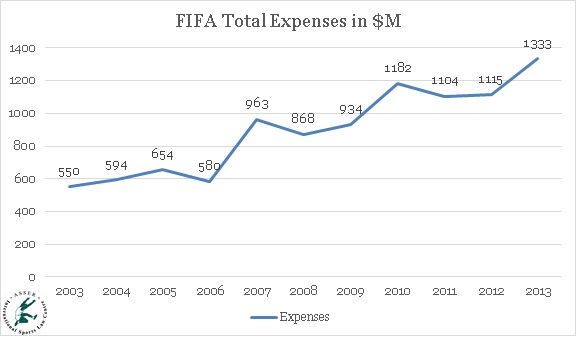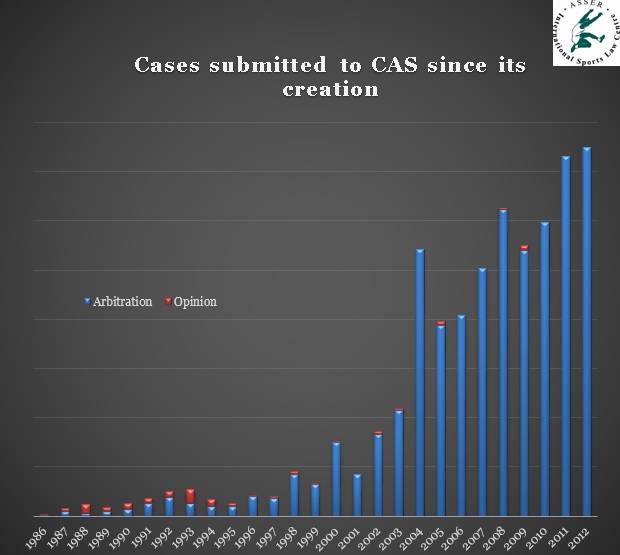I. Literature
1. Antitrust/Competition Law and Sport
G Basnier, ‘Sports and competition law: the case of the salary
cap in New Zealand rugby union’, (2014) 14 The
International Sports Law Journal 3-4, p.155
R Craven, ‘Football and State aid: too important to fail?’ (2014) 14 The International Sports Law Journal 3-4, p.205
R Craven, ‘State Aid and Sports Stadiums: EU Sports Policy or
Deference to Professional Football’ (2014) 35 European Competition Law Review Issue 9,
453
2. Intellectual Property Rights in Sports law /
Betting rights/ Spectators’ rights/ Sponsorship Agreements
Books
W T Champion and K
DWillis, Intellectual property law in the
sports and entertainment industries (Santa Barbara, California; Denver, Colorado;
Oxford, England: Praeger 2014)
J-M Marmayou
and F Rizzo, Les contrats de sponsoring
sportif (Lextenso éditions 2014)
More...
The International Sports Law Digest will be a bi-annual post gathering recent material on International and European Sports Law. This is an attempt at providing a useful overview of the new, relevant, academic contributions, cases, awards and disciplinary decisions in the field of European and International Sports Law. If you feel we have overlooked something please do let us know (we will update the post).
Antoine Duval More...
Our first report on the FIFA business dealt with FIFA’s revenues and highlighted
their impressive rise and progressive diversification. In parallel to this
growth of FIFA’s income, it is quite natural that its expenses have been
following a similar path (see Graph 1). However, as we will see FIFA makes it
sometimes very difficult to identify precisely where the money is going. Nonetheless,
this is precisely what we wish to tackle in this post, and to do so we
will rely on the FIFA Financial reports over the last 10 years.

Graph 1: FIFA Expenses in USD million (adjusted for inflation),
2003-2013.
More...

Graph 1: Number of Cases submitted to CAS (CAS Satistics)
More...
Dahmane v KRC
GENK
Court of Labour
of Antwerp (Hasselt district) 6 May 2014
Chamber 2
Algemeen rolnummer 2009/AH/199
The Facts More...
On 10 April, the ASSER Sports Law Centre had the honour of welcoming Prof. Weatherill (Oxford University) for a thought-provoking lecture.
In his lecture, Prof. Weatherill outlined to what extent the rules of Sports Governing Bodies enjoy legal autonomy (the so-called lex sportiva) and to what extent this autonomy could be limited by other fields of law such as EU Law. The 45 minutes long lecture lays out three main strategies used in different contexts (National, European or International) by the lex sportiva to secure its autonomy. The first strategy, "The contractual solution", relies on arbitration to escape the purview of national and European law. The second strategy, is to have recourse to "The legislative solution", i.e. to use the medium of national legislations to impose lex sportiva's autonomy. The third and last strategy - "The interpretative or adjudicative solution"- relies on the use of interpretation in front of courts to secure an autonomous realm to the lex sportiva.
Enjoy!
Dear Reader,
Today the ASSER International Sports Law Centre is very pleased to unveil its new blog. Not so surprisingly, it will cover everything you need to know on International Sports Law: Cases, Events, Publications. It will also feature short academic commentaries on "hot topics".
This is an interactive universe. You, reader, are more than welcome to engage with us via your comments on the posts, or a message through the contact form (we will answer ASAP).
This is an exciting development for the Centre, a new dynamic way
to showcase our scholarly output and to engage with the sports law world. We
hope you will enjoy it and that it will push you to come and visit us on our
own playing field in The Hague.
With sporting regards,
The Editors